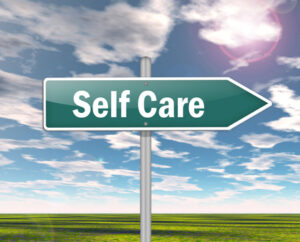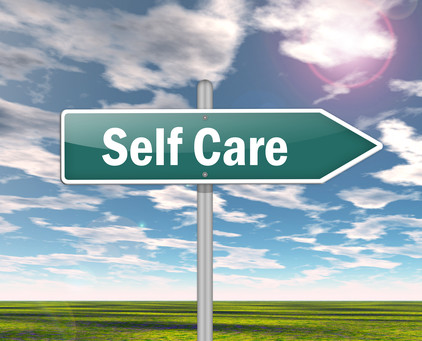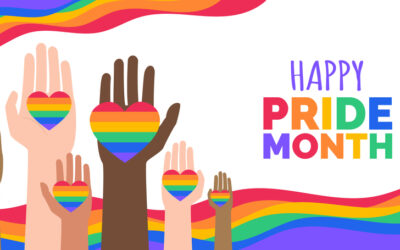by Veronica Vaiti, LCSW-R

Everybody does it to some extent, yet a vast majority of people continue to struggle with it. And when you’re doing well with it, you may find yourself buoyant, glowing and more satisfied. Yet when it is lacking you may feel ragged, edgy or dour.
The it we are referring to here is that softly spoken and yet seemingly under-valued practice of SELF-CARE and so we decided to devote our summer newsletter to exploring SELF-CARE, why it can seem so elusive and suggest steps you can begin to take right now to improve yours!
Self-Care is often misinterpreted as being selfish, a self-indulgence or a luxury. Self-Care is not a luxury. In fact at its most basic level, Self-Care is a MUST as it’s nearly impossible to get through life without some smidgen of self-care.
So what type of Self-Care are we talking about here?
Self-Care isn’t just about eating healthy and exercising, although that is a very important part of it. Self-Care is a broad term encompassing most every aspect of our lives including the physical, emotional & psychological, relational, environmental, financial and spiritual realms of who we are. Let’s take a look at each one…
PHYSICAL SELF-CARE = What you actually do or don’t do with respect to managing your physical body so that it can function optimally which includes your diet, exercise, sleep, tending to medical issues or pains and how you groom yourself. When was the last time you had a proper physical and medical check-up?
EMOTIONAL & PSYCHOLOGICAL SELF-CARE = Making and taking the time to explore and question why you tend to feel and think the way you do with the intention of building self-awareness, clarity of thought and respect of your inner most self. Settling with the statement “this is just who I am” will not suffice. Without this self-knowledge, life can be stunted. We also think of emotional and psychological self-care as the practice of being a good and compassionate friend to yourself. How do you think and feel about what you think and feel? How do you relate to yourself when you are feeling sad? angry? Do you have a harsh inner judge that critiques every action or inaction you make? Does your perspective fall towards a glass half-full mentality, glass half-empty or somewhere in between the two?
RELATIONAL SELF-CARE = Clarifying and understanding what your relational needs are from others, what your trigger points (where you get stuck) are when relating to others and working to manage those in a productive and growth-promoting way. This also encompasses trying in earnest to communicate as effectively and respectfully as possible.
ENVIRONMENTAL SELF-CARE = The degree to which you tend to your physical space in a way that reflects who you are and supports you in life. Is your home cluttered? Empty and austere? Do you still have belongings in boxes from your last move 4 years ago? How promptly do you change a burnt out lightbulb? Also, how you relate to your larger environment outside of your home. What do feel and do you do anything when you see a piece of litter on the floor?
FINANCIAL SELF-CARE = Managing the resources you have worked hard for or been given, whether large or small, in a way that best meets your basic needs at the very least. Financial self-care also encompasses paying attention to how you think and feel about money and how those thoughts and feelings manifest in your bank account and your relationships. Are you continually preoccupied with making money, or complaining you don’t have enough money? Wish you had a bigger home? Are you honest about your spending habits?
SPIRITUAL SELF-CARE = Making time to tune into that part of you that is beyond your day to day personality and ego identity – that part of you that some refer to as your higher self. This can be done by sitting quietly in meditation, studying scripture or finding union with nature.
In short, SELF-CARE = TAKING RESPONSIBILITY FOR YOURSELF
Sounds simple enough, yet it can be very hard to juggle all of this indeed.
There are many blocks to Self-Care. Consider the following:
- Having a natural disposition towards inertia, fear of change or dreading any form of discomfort – people are born with different thresholds of discomfort tolerance. While some people are more accepting and willing to dive into uncomfortable situations, others may loathe anything new.
- Having a tendency towards avoidance of your feelings – either because you feelings may scare you or you haven’t been shown how to relate to your feelings.
- Lacking models for adequate self-care – perhaps your parents or caregivers also struggled in one or many of the areas of self-care, and so many of your behaviors are in fact learned behaviors and no one has ever taught you otherwise or you just didn’t know how or who to ask for help.
- Unwillingness to take responsibility for ourselves – if you find yourself complaining constantly about _____(fill in blank with your complaint of choice) and yet nothing is changing, it may be helpful to explore what it would mean to take responsibility for making said change.
- Perfectionism – thinking you have to get it right the first time which can prevent you from even trying at all.
- Misappropriation of values/Going for the quick-fix – valuing others more so than you value yourself in a way that results in harm or damage to yourself. Or, valuing having the latest tech gadget or designer handbag (that you really don’t need) ahead of putting money towards that week-long yoga retreat that you said you wanted to go on (but you don’t believe you would ever save enough money for so why bother)
- Low self-esteem, self-worth or lack of respect for self – how can you take care of someone who you don’t in fact value, respect or actually regard as worthy?
- Lack of permission to have needs – if you think you are superhuman and have no needs, or you have too many other demands to meet before you meet your own needs, sorry to break it to you, but you are most likely fooling yourself.
- Circumstantial or situational blocks – having a new baby, experiencing a loss of a loved one or a loss of job or being a victim of a natural disaster or trauma all obviously can turn your world upside down and may require an entirely different set of needs for you
All of these above noted blocks to self-care can be so much more complex than able to further discuss here – the gist of it all is that if you are not caring for yourself in a way that is life-promoting, its crucial to begin by trying to understand the reasons behind your lack or self-care.
Your lack-of adequate self-care may be the result of a many factors, both internal and external, and so it is crucial to understand what those blocks are made of before forcing yourself to make an impulsive change out of frustration or you may be setting yourself up for failure.
—HERE’S WHAT YOU CAN DO NOW—
STEP 1 – take an honest inventory of where you stand with regard to your self-care
on all levels
STEP 2 – assess your level of toleration for discomfort
STEP 3 – identify where your self-care is blocked and how
STEP 4 – recall and name aspects of achieved self-care as evidence you are capable and can do better
STEP 5 – set realistic goal (s) of how you would like to be different
STEP 6 – identify the smallest steps possible to take towards the realistic goals
STEP 7 – take one small step (which is a really big step), breath in and see how that feels for you
STEP 8 – say THANK YOU to yourself for doing something well-meaning for yourself.



